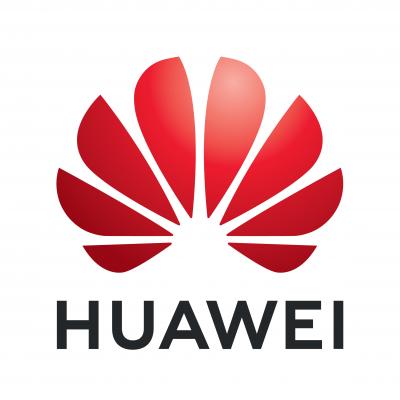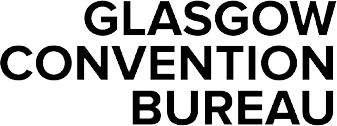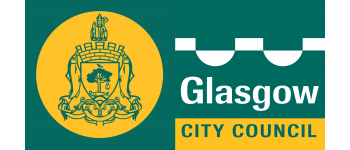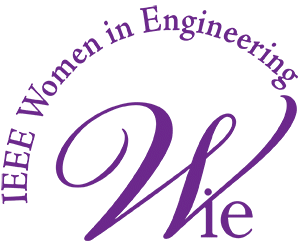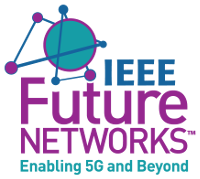WCNC 2023 will include technical sessions, tutorials, workshops, and technology and business panels. You are invited to submit papers, and proposals for panels, tutorials, and workshops, in all areas of wireless communications, networks, services, and applications. Information on how to submit proposals for panels, tutorials, and workshops can be found on the WCNC 2023 conference website. Submissions of technical papers should be made via EDAS in the following four tracks. Submissions will open shortly.
Track 1. Physical Layer and Communication Theory
Chair Marco Di Renzo, CNRS & Paris-Saclay University, France
Co-Chairs Daniel Benevides da Costa, Technology Innovation Institute, UAE
Gunes Karabulut Kurt, Polytechnique Montréal, Canada
Wasiu Popoola, The University of Edinburgh, UK
- Antennas and RF
- Channel Modeling and Estimation
- Coding Theory
- Energy Harvesting and Low Energy Communication
- Feedback and Two-Way Communication
- Free Space Optical Communication
- Fundamentals of Age of Information
- Holographic Surfaces and Reconfigurable Surfaces
- Information Theory and Channel Capacity
- Integrated Sensing and Communications
- Iterative Techniques, Detection, and Decoding
- Low Resolution Communication
- Millimeter Wave and Terahertz
- Next Generation MIMO and Massive MIMO
- Physical Layer Security
- Propagation and Interference Modeling
- Relaying and Self-Backhauling
- Short Packet and Finite Block Length Communications
- Stochastic Geometry
- Visible Light Communications
- Waveforms and Modulation
- Wireless Power and Information Transfer
Track 2. Networking and MAC
Chair Leila Musavian, University of Essex, UK
Co-Chairs Hina Tabassum, York University, Canada
Linglong Dai, Tsinghua University, China
Behrooz Makki, Ericsson, Sweden
- Scheduling and Opportunism
- Resource Management
- URLLC, Time Sensitive and Deterministic Networking
- Network Slicing
- SDN/NFV
- Routing and Congestion Control
- Multihop Networks
- Multiple Access and Contention
- Cooperative Communication and Networking
- Cognitive Radio and Networking
- Spectrum Sensing, Access, andSharing
- Wireless Network Security and Privacy
- Backscatter Communications
- Edge Computing, Edge Intelligence and Fog Networks
- Network Economics
- Energy-Efficient and Green Networking
- RAN Data Collection and Storage Enhancement
- Unlicensed Spectrum and Licensed/Unlicensed Inter-networking
Track 3. Machine Learning and Optimization for Wireless Systems
Chair Gang Feng, University of Electronic Science and Technology
of China, China
Co-Chairs Salman Durrani, Australian National University, Australia
Mona Jaber, Queen Mary University of London, UK
Basak Guler, University of California, USA
- Deep Learning for Wireless
- Reinforcement Learning for Wireless
- Federated Learning and Distributed Learning for Wireless Networks
- Unsupervised, Semi-supervised Learning and Generative Models
- Communication-inspired Machine Learning (ML) for 6G
- End-to-end ML over Wireless Channels
- Scalability of ML for Wireless
- Performance Analysis of ML Techniques forWireless
- Beam Management based on ML
- Data-driven Network Modelling and Optimization
- Networking Architectures for Artificial Intelligence
- AI Service Provisioning in Wireless Networks
- Intelligent Green Wireless Networking
- Bayesian Optimization for Wireless
- Convex and Non-Convex Optimization for Wireless
- Semantic and Goal-Oriented Communications
- Game Theoretic Approaches to Wireless
- Datasets for Wireless Systems and Channels
Track 4. Emerging Technologies, Standards, and Applications
Chair Carlo Fischione, KTH Royal Institute of Technology, Sweden
Co-Chairs Richard Demo Souza, Federal University of Santa Catarina, Brazil
Sami Muhaidat, Khalifa University, UAE
Aryan Kaushik, University of Sussex, UK
- Experiments, Prototypes and Testbeds
- Sensing and Localization
- Joint Radar and Communications
- Visible Light and Optical Communication
- Connected Vehicles and Vehicle to Everything (V2X)
- UAVs and Non-Terrestrial Networks
- Satellite and Deep Space Communications
- Intelligent Beamforming Relays
- Molecular and Nano Communications
- IoT and Machine Type Communications
- Software Defined Radio and Networks
- 5G NR and 6G standardization
- O-RAN
- 802.11 and next generation Wi-Fi
- E-health and Mobile Health
- Blockchain and Cryptography
- Quantum Communications
- Innovative implanted and wearable devices
- Networking support for virtual and augmented reality
- Backhaul/Fronthaul Networking & Communications
- Integrated Sensing, Computing and Communications
AUTHOR AND SUBMISSION GUIDELINES
Important IEEE Policy Announcement: The IEEE reserves the right to exclude a paper from distribution after the conference (including its removal from IEEE Explore) if the paper is not presented at the conference.
Papers are reviewed on the basis that they do not contain plagiarized material and have not been submitted to any other conference at the same time (double submission). These matters are taken very seriously and the IEEE Communications society will take action against any author who engages in either practice. Follow these links to learn more:
IEEE Policy on Plagiarism
IEEE Policy on Double Submission
PLEASE NOTE: To be published in the IEEE WCNC 2023 Conference Proceedings and to be eligible for publication in IEEE Xplore®, an author of an accepted paper is required to register for the conference at the FULL or LIMITED (member or non-member) rate and the paper must be presented by an author of that paper at the conference unless the TPC Chair grants permission for a substitute presenter in advance of the event and who is qualified both to present and answer questions. Non-refundable registration fees must be paid prior to uploading the final IEEE formatted, publication-ready version of the paper. For authors with multiple accepted papers, one FULL or LIMITED registration is valid for up to 3 papers. Accepted and presented papers will be published in the IEEE WCNC 2023 Conference Proceedings and submitted to IEEE Xplore®.
During the initial paper submission process via EDAS, it is the authors' responsibility to ensure that the author list and the paper title of the submitted pdf file is an exact match to the author list and paper title on the EDAS registration page. In particular, the EDAS registration page must include all co-authors, not just the submitting author. Failure to comply with this rule might result in your paper being withdrawn from the review process. Please be aware that the author list of an accepted paper can NOT be changed in the final manuscript. Only PDF files will be accepted for the review process, and all submissions must be done through EDAS.
IMPORTANT:
The page length limit for all initial submissions for review is SIX (6) printed pages (10-point font) and must be written in English. Initial submissions longer than SIX (6) pages will be rejected without review.
All final submissions of accepted papers must be written in English with a maximum paper length of six (6) printed pages (10-point font) including figures. No more than one (2) additional printed pages (10-point font) may be included in final submissions and the extra pages (the 7th and 8th pages) will incur an over length page charge of US$100 for each page. All final papers must be submitted to the IEEE Conference eXpress website. Please refer to the acceptance letter for the instructions on how to upload final papers.
You may also use one of the following templates for Microsoft Word: A4, US letter.
Download Standard IEEE conference templates for LaTeX formats >>
If you have any questions regarding the submission of manuscripts, please contact one of the Technical Program Chairs of the Symposia that you are submitting a paper.



